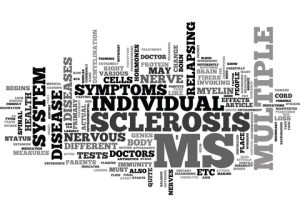
“Tips and Cautions”
The upside of the internet and social media is that mounds of information about MS are available immediately with the stroke of a few keys and searches. Folks need as much knowledge that they can get to help them understand and handle this complicated disease.
The downside of the net–besides being overwhelming–is that one has to be very careful with the validity of the source and information of what is read. I read discussions between MSers on Facebook, other social media, and MS Association sites and am concerned by how much info is misleading, incorrect, and cause for fear. Bad information causes bad decisions.
1. Understand which treatments/drugs help symptom improvement.
While it is gratifying that DMTs (Disease-Modifying Therapies) are reducing relapses for many MSers, participants in some discussions talk about how their symptoms improved when they were taking a certain DMT.
This is not true. Here is what one MS specialist-neurologist stated:
“The disease modifying medications do not directly help with symptoms in MS. these medications are to delay disability, slow progression and some can have improvements on MRIs. I can tell you that I have seen people in my clinic that had been doing well for years and so didn’t start any medications. But, then they had an attack that hit them quite hard. Then they wanted to go on a medication, “to get better. I told them that the medications are to keep from getting worse and not to make one better.”(see Source #1 below)
Now, there ARE drugs to directly and successfully treat symptoms (e.g. depression, bladder incontinence…), and relapses (e.g. steroids). These often improve symptoms and help a patient feel better, but not alter the disease course or direction of the disease itself.
2. No treatment exists today that will stop the disease activity/progression and damage completely, or reverses it. (see Source #2 below)
Recently, I followed a discussion on FB about stem cell treatments that miraculously accomplished this for them. Most of the participants that had the procedure were diagnosed within the past two-three years. These participates probably did not know their personal pattern of relapses; it’s not uncommon to lose one’s sight or have impaired mobility for a long stretch of time in their initial relapses. Their recovery was more likely due to the relapse being over and they’re being back into remission with little residual, which is very common in the early years of the disease.
Furthermore, it takes a while for a patient to understand their own case of MS and how their body responds to a variety of things—both medicinal and non-medicinal. Nowadays, it is even more difficult since a newly-diagnosed person during their first couple of years are receiving DMTs and drugs for relapses and symptoms all at the same time. What is doing what?
3. Be careful with reading statistics, study results, etc.
I worked a number of years in my professional jobs doing financial analyses and market research. One of the things I know from that experience is that conclusions of studies can be misleading by what numbers are used and how numbers are presented. I’ve become quite the cynic about this.
For example, one might read “according this study, 50% of patients using XYZ showed a 38% reduction in…” How many people were used in the study, what were their characteristics, how long did they take XYZ, what were their side effects, who did the study, etc. You have to dig deeper, be cautious, use common sense and talk to your professionals when you hear something of interest and want to pursue it (like trying a new medication).
How would you feel if you discovered that a study was based on eight people?
4. When gathering information, consider the following:
• Use common sense and logic.
• If something sounds too good to be true, it probably is.
• Listen to your gut, not what you want to hear.
• There is no cure, and if something says you will be cured, throw it away. You can manage MS and even control it in many ways, but there is no cure yet.
5. What are good Sources of Information?
MS associations and Pharmas are good sources of information that can be trusted for acquiring basic MS knowledge about the disease itself, the symptoms, current research/events that are happening, and treatments that are available. They also can be helpful in providing programs and forums for people dealing with MS to get together and interact.
Where to use caution?
• When listening/reading information that MS associations, Pharmas, and neurologists present statistical information about study/treatment results. They all recommend DMTs as the first line of defense, and one has to be careful of taking this information at face value. Re-read #3 above, and know that numbers/statistics can be arranged to project just about anything. Dig deeper into what you are told. You may be surprised.
For example, a current starting point to get specific data on DMT’s is Source #2 below. And read closely. On Page 13, the colleagues point out that 50% of persons diagnosed will have “benign MS”. People with benign MS will have an Expanded Disability Status Score (EDSS)<3 after 10 years. After 20 years they found while 51% remained benign, 21% had progressed to EDSS >6 and 23% had converted to SPMS.
The point? Stats like these could help a patient weigh their options more carefully.
• A standard line of advice is “consult with your doctor.” Do you trust your doctor? How experienced is your doctor with MS? Does your doctor listen to you and talk with you, respect your questions and doubts? If the answer is no to any of these, it’s a red flag. Remember that doctors get kickbacks, and truthfully are limited to prescribing drugs and giving referrals. Get second and even third opinions.
• Social media sites are wonderful for sharing information and feelings with other peers, but remember that two-thirds of effective communication is through body language. There is no eye contact, no voice to hear, etc. that can make judgment of people difficult. Learn the background of the people you engage with. If reading an MS blog, make sure it is a credible, respected and experienced person that is doing the writing.
Here is a link to my Resources/Links page on my website that is quite comprehensive, not overwhelming, and judged by many to be trusted http://debbiems.com/links-resources_271.html . (You can check out my background, experience and credentials in other sections of my site.)
(Sources)
#1 The NPR Diane Rehm Show (9/24/2012) aired “Diagnosing, Treating and Living with MS.” A panel of experts—neurologists/MS Specialists including a doctor who has MS—answered audience questions about diagnosing, treating and living with multiple sclerosis.
#2 The Use of Disease-Modifying Therapies in Multiple Sclerosis: Principles and Current Evidence http://bit.ly/1oEnTqY September, 2012
www.DebbieMS.com
Author/MS Counselor/Living with MS
Image courtesy of Stuart Miles at FreeDigitalPhotos.net


 “What’s going on?—I’m so scared!”
“What’s going on?—I’m so scared!”